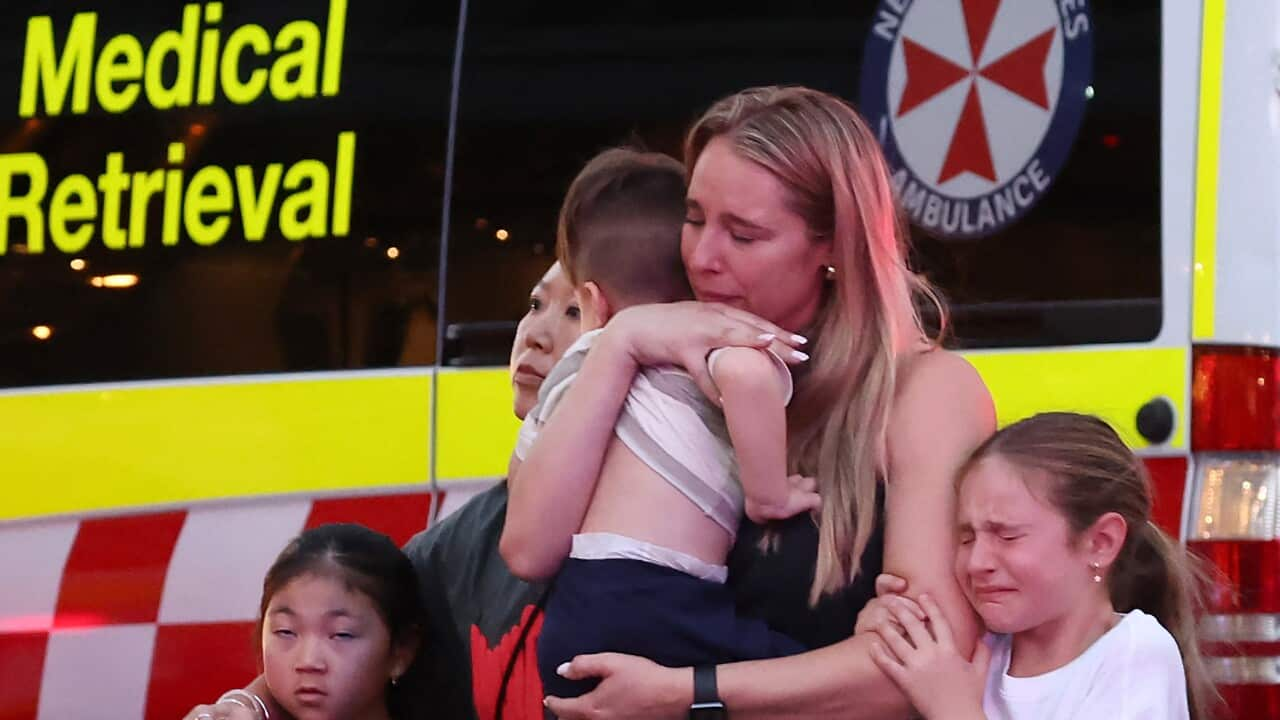Almost 200 Australian community groups have signed an open letter to Prime Minister Scott Morrison, urging him to include more than one million refugees, asylum seekers and vulnerable communities in the government's coronavirus response.
The group, including the Refugee Council of Australia, Amnesty International Australia and the Human Rights Law Centre, said asylum seekers on bridging visas and temporary visa holders were being "left behind" under the current economic supports. "As Australia and the world suffers the impact of the COVID-19 pandemic, it is clearer than ever that how we treat the most vulnerable in our society directly impacts the health and wellbeing of all of us," the open letter read.
"As Australia and the world suffers the impact of the COVID-19 pandemic, it is clearer than ever that how we treat the most vulnerable in our society directly impacts the health and wellbeing of all of us," the open letter read.

A protester holds a placard saying 'free the refugees, let them stay' during a Brisbane demonstration on Friday. Source: AAP
"If anyone is left destitute, with no access to affordable medical help or unable to minimise the risk of catching the virus, all of us are at greater risk."
The group called on the government to let people in Australia access Medicare during the pandemic, regardless of their citizenship or visa status.
They also want to see JobSeeker payments to temporary visa holders and people on bridging visas, which they say would in turn help the businesses employing them.
"People seeking asylum who are living in the community without access to Medicare and basic financial support are some of those at greatest risk for COVID-19 and also those that cannot adhere to public health requirements like self-isolation," they said.
"This situation is growing worse by the day as people seeking asylum and other temporary visa holders lose their only form of income."
Leading epidemiologist Professor Michael Toole said the government did not have to look too far overseas to see the potential health disaster that could unfold when vulnerable sectors of society go forgotten.
He pointed to Singapore, Qatar, the United Arab Emirates and Saudi Arabia as examples of countries that have had significant COVID-19 outbreaks among their migrant workers, undermining their overall responses to the pandemic. "In all of these countries, migrant workers have been housed in crowded dormitories with inadequate access to clean water and sanitation,” Professor Toole said.
"In all of these countries, migrant workers have been housed in crowded dormitories with inadequate access to clean water and sanitation,” Professor Toole said.

A protester holds a placard saying 'welcome refugees - people just like us' during a demonstration in Brisbane. Source: AAP
"Australia must do all it can to ensure that vulnerable people such as those lacking permanent resident status are not disadvantaged by their inability to adhere to recommended public health measures like physical distancing and hand-washing."
The Refugee Council of Australia said many asylum seekers and families on bridging visas were already reporting job losses since the outbreak began.
CEO Paul Power said the situation would only deteriorate if vulnerable communities continued to be "left out in the cold".
"They, like all Australians, are facing job losses and financial hardship right now," he said.
"Without access to basic support, there is a serious risk that these people – including many families with children – will become destitute or homeless."
People in Australia must stay at least 1.5 metres away from others. Check your state’s restrictions on gathering limits.
Testing for coronavirus is now widely available across Australia. If you are experiencing cold or flu symptoms, arrange a test by calling your doctor or contact the Coronavirus Health Information Hotline on 1800 020 080.
The federal government's coronavirus tracing app COVIDSafe is available for download from your phone's app store.
SBS is committed to informing Australia’s diverse communities about the latest COVID-19 developments. News and information is available in 63 languages at









